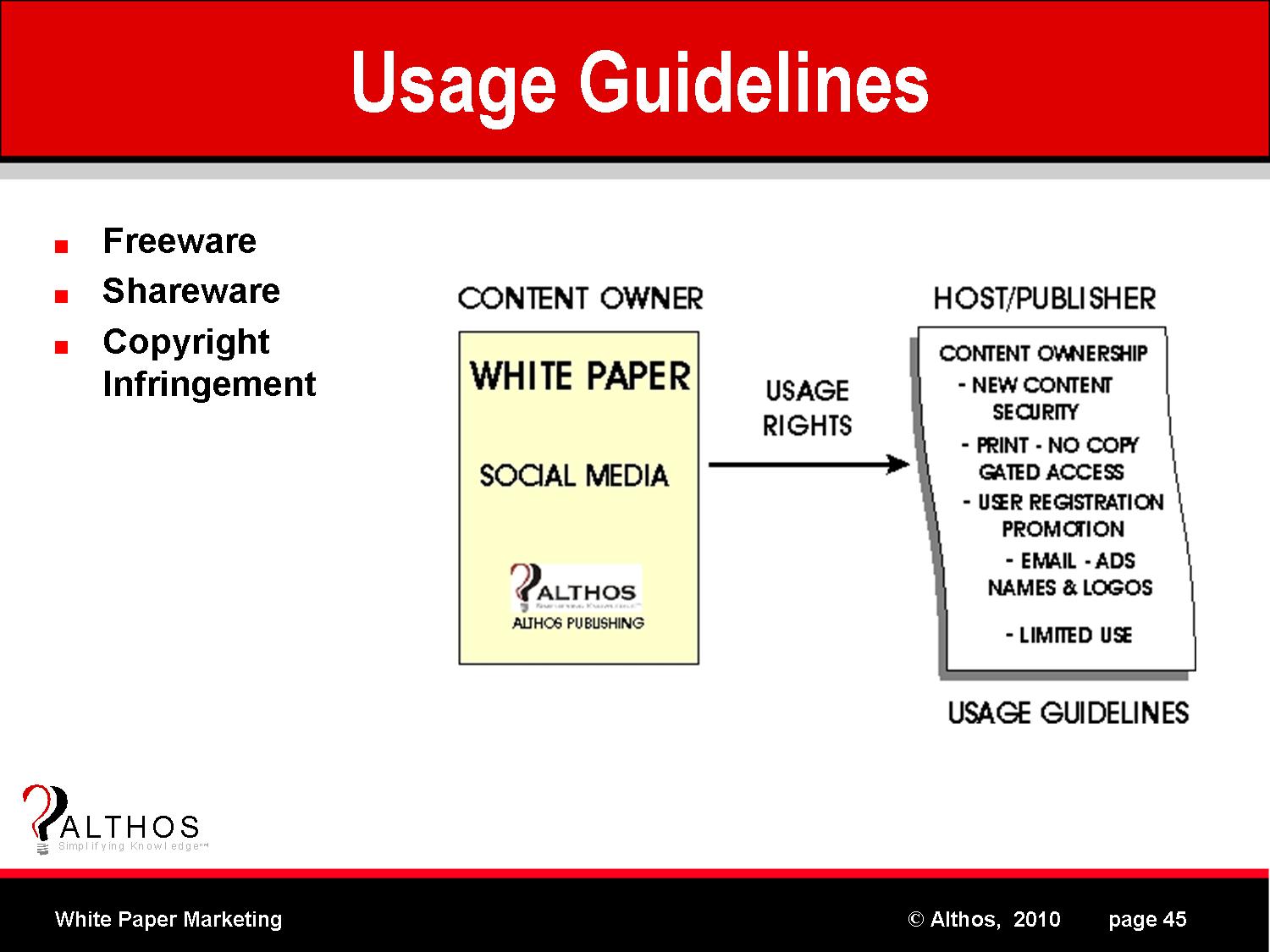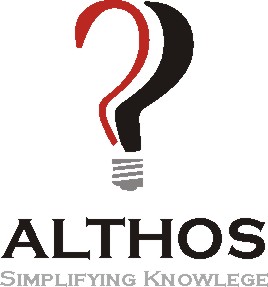 | ||
 White Paper Profile Form |
 White Paper Content Guidelines | |
White
paper usage guidelines are a set of
rules that are used to define what materials are needed, how they may be
used, and what authorizations are granted for the submitted content. Some
key usage guidelines terms include content ownership, document security,
use of names and logos, and contact information.
Content Ownership - White papers may be provided to a host company on a non-exclusive basis, while the rights to the content remain with the white paper creator. The hosting company may create new content, such as descriptions, audio podcasts and videos, the rights to which they own. The submitter of the white paper should have the rights to use the content. Content ownership may stem from the creation of original content or the licensing of content that belongs to other people or companies. The use of unauthorized content (such as copying from a web page without authorization) may violate copyright laws. Document Security - White paper documents may utilize security settings, such as password submission upon opening, as well as usage options, such as permission to print, copy or change the contents of the white paper. The assignment of user specific passwords upon download for each white paper document can be complicated, and assisting recipients with security questions can be time consuming. In general, password assignment can cause difficulty, which often outweighs the benefit of any increased perceived value by recipients. Registration - White paper registration is the process of requiring readers to submit identification information before being provided with access to the white paper. While it is possible to ask the reader to provide qualifying information in addition to name and email contact information, less information requested usually results in higher download registration submissions (higher download to visit ratio). Delivery - White papers may be submitted to hosing companies by different methods such as FTP (often preferred), email (can be difficult for large files), and stored media (CD, DVD or memory stick). In addition to defining the ways that white paper materials may be transferred, usage guidelines may also define the types of files (images and text), along with their file names. Promotion - In terms of white paper promotion, host companies may utilize a mixture of promotional methods such as email announcements, search engine advertising, banner advertisements, video promotions, and other methods. White paper hosting companies may charge additional fees for added promotional services. Use of Names and Logos - The white paper hosting company will likely require permission to use the name of the submitting company, as well as any brand names and logos for promotional purposes. Usage guidelines may define that the hosting company may only use names and logos when directly associated with the promotion of the white paper. Tracking Links - The white paper publisher may desire to add links to the document that can track the opening and usage of the white paper. This means that the white paper must be delivered in a form that can be modified (not password protected). Contact Information - Contact information used in white papers includes both reader and contributor contact information. Contact information that is used by the publisher to setup the hosting of the document (such as from a marketing manager or PR agency) is not usually published unless requested. | ||
 more details |
White Paper Marketing Book
White Paper Marketing, More Sales Leads, Less Effort explains how to use white papers to generate lists of highly qualified sales prospects while providing valuable and well received content to readers. Readers will learn how to develop, promote, and track the effectiveness of white paper marketing. $34.99 Printed, $29.99 eBook |
